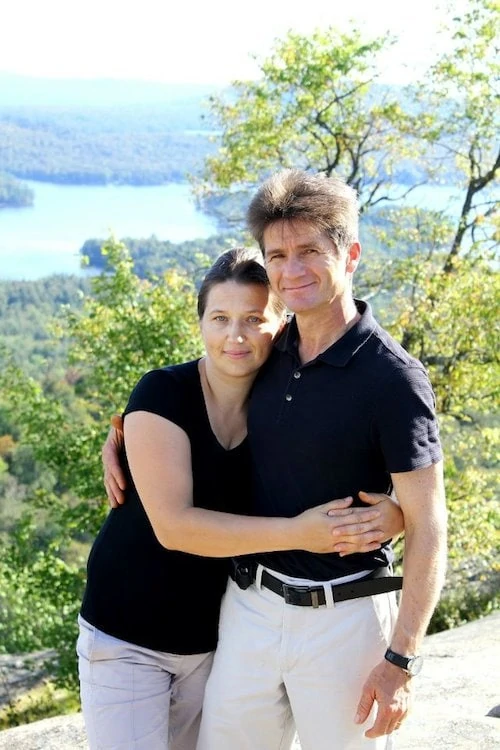
Growing up in a family of immigrants, I observed frugality since I was in diapers, cloth diapers, to be exact:). We came to America when my parents were 25 and 30, with 5 children, all 6 years old and younger. Yikes!
They started out with nothing except the suitcases that they brought with them. I've noticed that immigrants have a mindset that is keen to all things thrifty and economical, and I think it's because we came from a place where it was simply a necessary way of life.
Here are some common frugal tips that I’ve observed by watching my parents, relatives and other immigrants. Actually, I know many multigenerational Americans who use many of these tips as well, while many immigrants are not frugal at all. This is just a general observation.
1. Reuse and Repurpose
Sour cream containers are great to hold many other things, like leftovers, dry ingredients, etc. Plus, they are free:). My Grandma loves to use them for sugar and other things. Sturdy plastic containers, metal or glass containers are golden to use for storage. I keep my yeast in this lovely jar from a cookie container from many years ago. 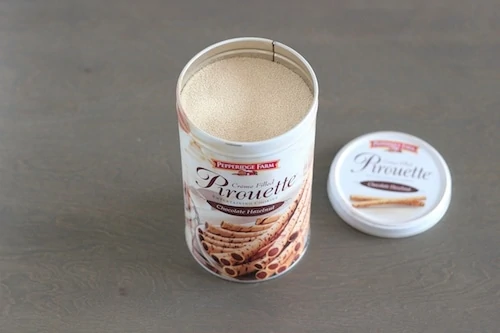
2. Be a jack of all trades.
It seems to me that my parents can do anything.
Mom can knit, sew, cook. Mending clothes is a big money saver, of course. It’s kind of sad to me that we are losing some of these beautiful skills. Many of you have probably seen this funny quote on Pinterest “In the near future, little old ladies won't be able to knit, sew, or quilt, but they'll take awesome self-pics in the bathroom mirror”. I was mesmerized to watch my grandma embroider and I’m so glad she taught me how to do it when I was still a little girl.
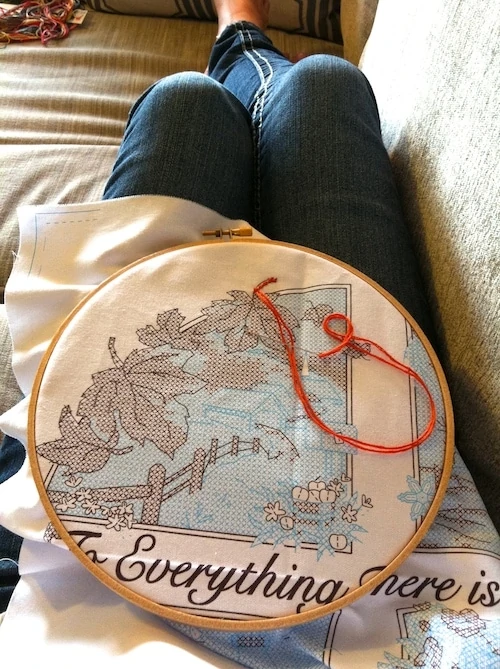
Dad can do any kind of repair, whether it’s car repairs, home repairs, furnace, lawn mower, tractor, washing machine or stove. You name it, he can fix it, or figure it out. He never had any formal training to build houses, put in driveways, cut down trees and run a sawmill, but he taught himself how to do it. My parents were always amazed at people who paid money to get their oil changed or tires replaced by others.
Why, my Dad didn’t balk at changing an engine himself, and built our beautiful family home from the foundation to the roof with his own two hands, even put in all the plumbing and electricity. In the old country, the mindset was that if you needed a house, I guess you were going to learn how.
3. Be an expert DIYer and Cook From Scratch.
As I just talked about, immigrants were big in DIY and clean eating before it became cool. In Belarus, there weren’t any convenience foods or processed mixes and very little canned food. I'm referring to eating food that is in it's most natural state, not the actual diet that is such a huge movement right now. I'm not saying they had the greatest healthy diet, but out of necessity, most of it was organic and very minimally processed.
Cooking from scratch doesn’t have to be intimidating. It’s actually quite simple and so much cheaper too.
My parents have wild grapes on their property, as well as many other berries and apples too. Mom freezes what they don't eat and uses it in baking, smoothies and drinks, such as Kompot.
Having a vegetable garden in the former Soviet Union was a matter of survival.
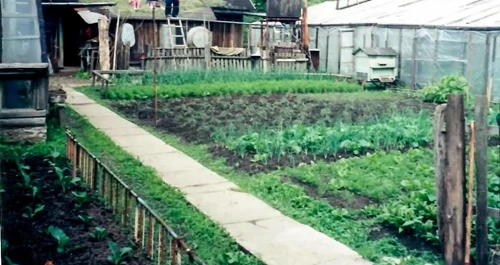
The harsh, long winters and short summers meant that we had to work hard to grow and preserve enough food to last us through the winter, since it just wasn’t available to be bought when growing and harvesting seasons were over. Everyone had a root cellar full of potatoes, onions, garlic, beets, cabbage, carrots and walls lined with canned food that the Slavic housewives preserved themselves.
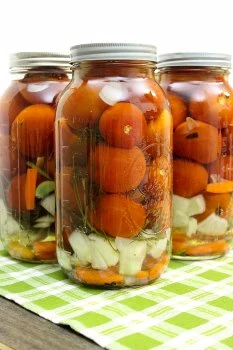
I know many people save so much money on weddings by doing things themselves, such as cooking for several hundred people, making backdrops, arranging the flowers, etc.
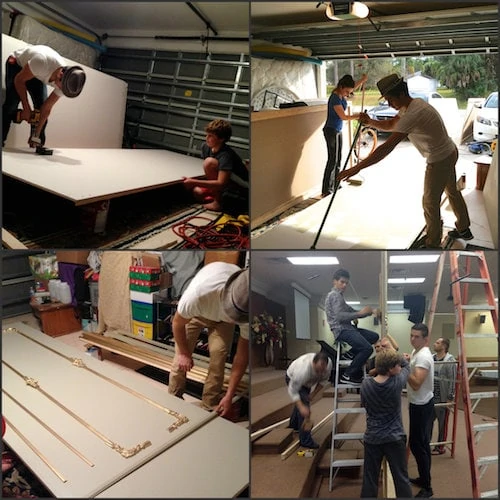
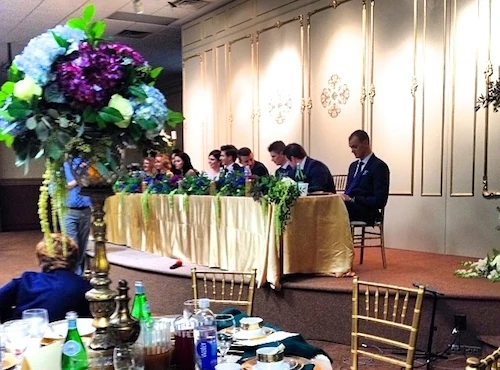
This Christmas, my siblings and I, with our spouses, decided to exchange gifts choosing one another as Secret Santas and made all homemade or personalized gifts to each other. It was amazing what everyone came up with. It was so much more special and personal. My sister made me a huge wooden chopping board with my blog logo that she burned into the wood herself. Isn’t it awesome?
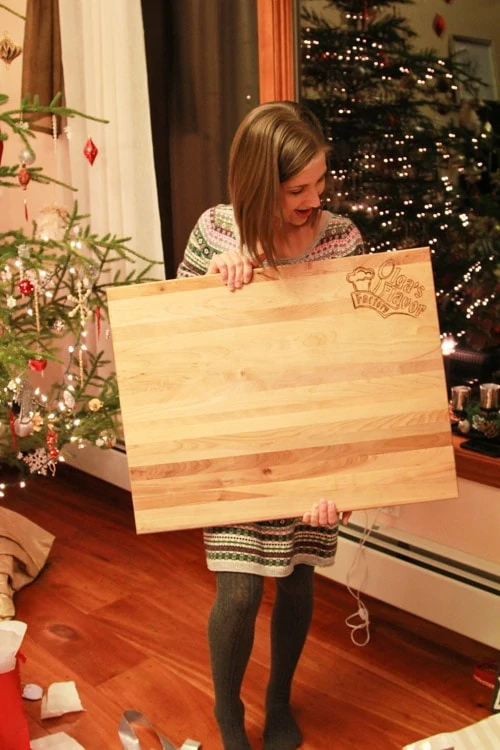

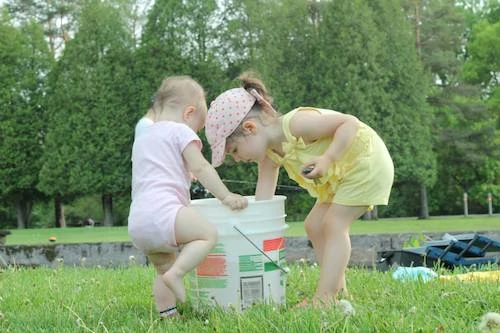
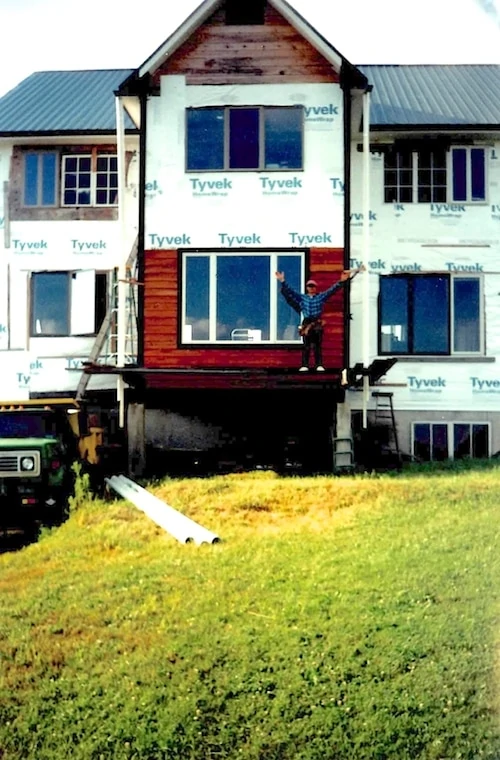
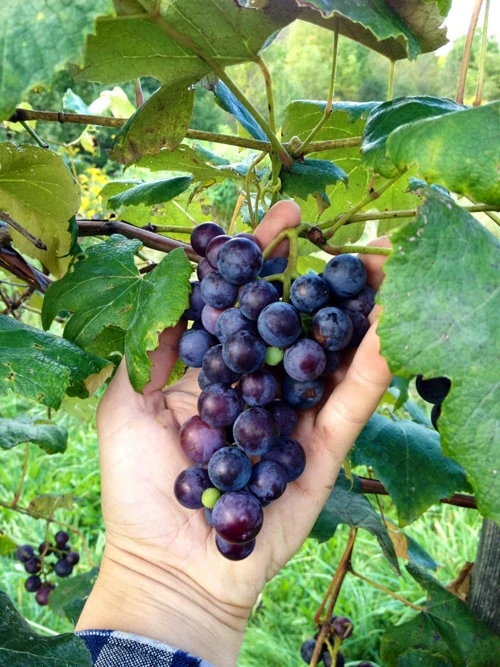

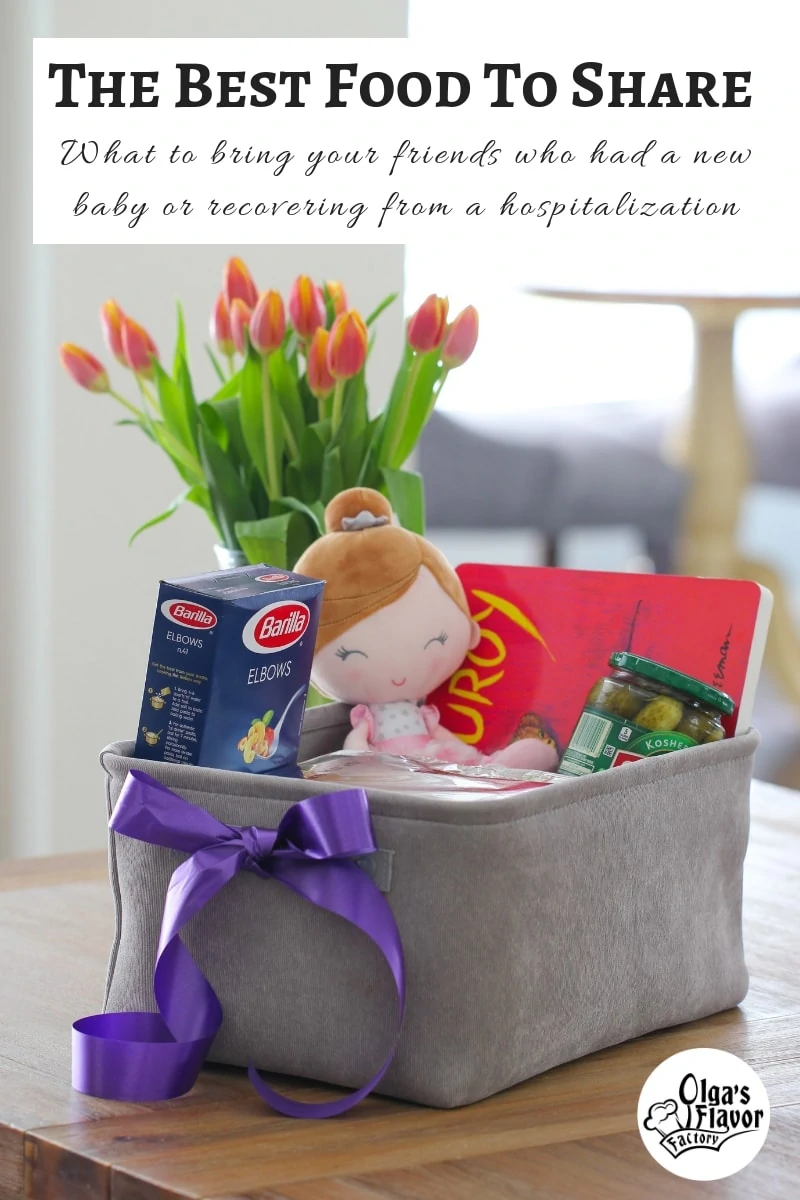


Thank you for sharing these nice stories (along with useful tips), Olga. I love your writing. To this day I still help my granny make the same things her granny made, we make a lot of varenye, pickles of all kinds, and sometimes cheese. I'm really impressed that your father built such a massive house, it makes me think "I can do that too [eventually]"
Hi olga!
I've been following you on ig for a few years now and was just showing your blog and recipes to my mom. My parents are also from Minsk and we immigrated to the US in 1989 (we left in 88 but lived in Austria and Italy for a while before finally being granted visas to the US)
As soon as my mom saw your mom's photo she said that your mom looks very familiar. She insisted that I write you to tell you that we lived in Frunzensky District and to ask your mom where she lived and if you guys immigrated via Ladispoli.
Hi Mila,
It's so good to "meet" someone from Minsk! How cool.
We didn't immigrate via Ladispoli; we came straight to NY. We came to America in December of 1992.
Thank you so much for sharing, Olga!
I absolutely Love your blog! My family and I came to America 26 years ago when I was 13 from Estonia/Russian border. With 4 kids, we have always learned to reuse everything. I still reuse as much as possible and definitely am very crafty. My mom and grandma taught me how to knit, crochet, embroider and sew, along with cooking and gardening. All 4 of us were also sent to music school by my parents (who worked very hard to pay for those lessons) and learned how to play the piano, along with music history, music theory and appreciation.
I just stumbled onto your blog today, and looking forward to following you on all the social media. 😉 I did want to ask you about the cross stitch project. I love Ecclesiastes 3:1-8 passage about there being a time and purpose to everything. Would love to know where you got it. Haven't cross stitched in years, though. 🙂
May our awesome God continue to bless you and your beautiful family.
Natasha
I really enjoyed reading your comment, Natalia. You are so talented and hard working. That's so great that you learned so many things from your mother and grandma. That's such a priceless gift that they passed on to you. I always treasure the things I learned from my Mom and grandmothers and I really cherish the time that I get to spend with my parents learning from them and making memories.
Thank you so much for taking the time to write.
I learned from my late paternal grandmother (may she rip) and mother how to repurpose leftover food a lot of my childhood summers were in nc north Carolina and whatever food was leftover (if it was enough) for example if there was enough chicken she would make a really yummy creamy chicken salad or lots of potatoes she would make a hash omelette my mom has also taught me ways to come up with creative dish ideas for example with potatoes that look like they can use a makeover I make casseroles or bakes my sissy is very into bakes and it's usually finished on the same night or the next day
I love repurposing leftovers too. It gets my creative juices flowing:). Thank you for sharing about the things that you learned from your mother and grandmother.
My pleasure olga definitely a big money saver big time and also this way my whole family goes out to eat a lot less